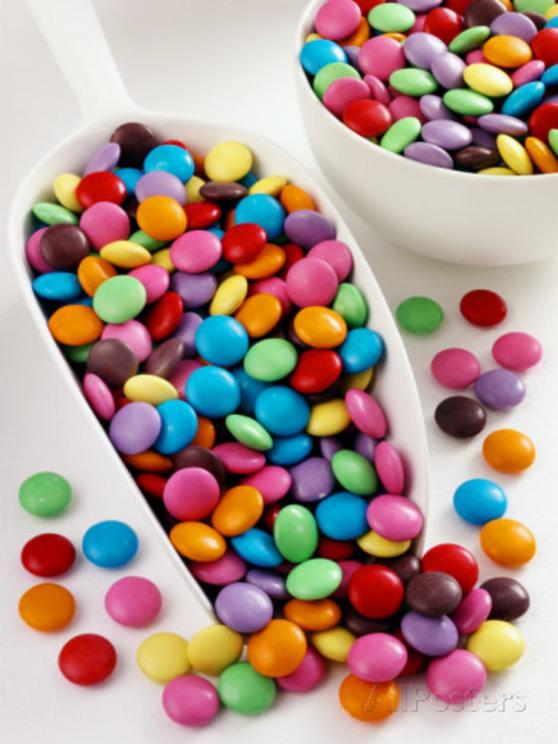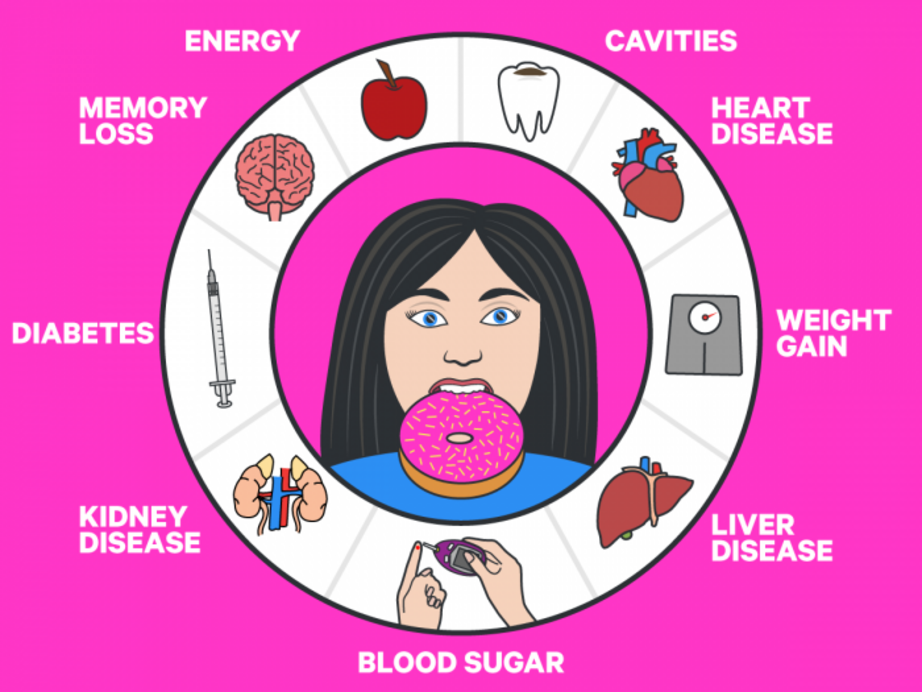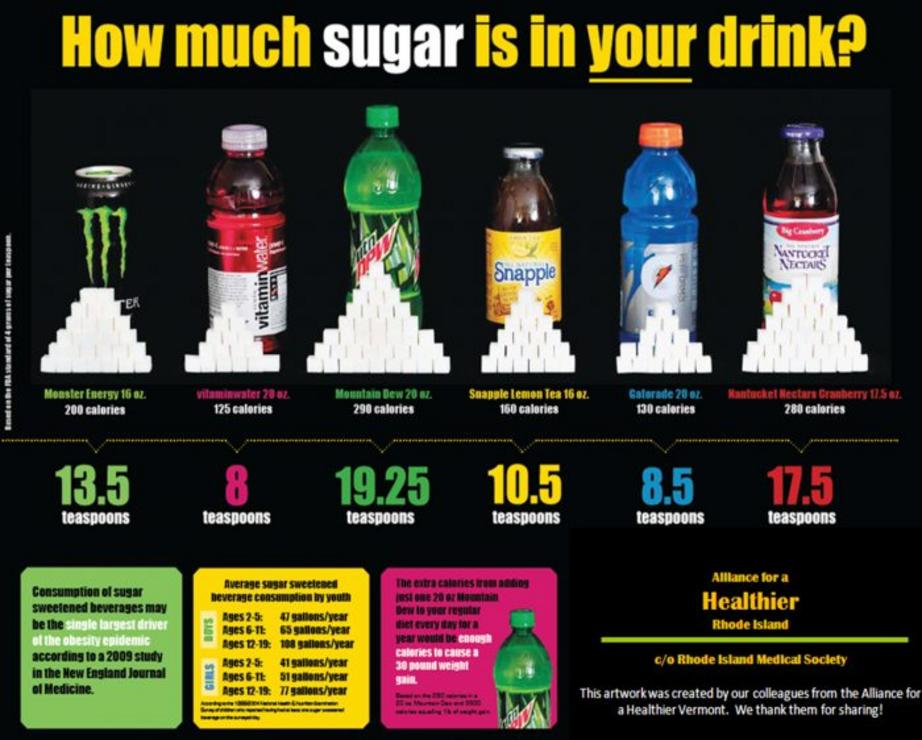Food industry study slams recommended sugar intake limits
NYU nutrition professor calls the paper "shameful"
A study made headlines after stating that there is no way of knowing just how much sugar consumption is too much, and the methods used to create dietary sugar intake limits are flawed.
CNN’s headline reads: “How much sugar is OK? Paper adds to debate.” Hmm, not really. The study was funded by the North American branch of the International Life Sciences Institute (ILSI), a nonprofit with ties to Hershey’s, Coca-Cola, PepsiCo, McDonald’s, Mars, and Kraft Foods. [1]
There’s not much of a debate when the companies funneling money into research make soda, candy, and processed foods.

The Claims
The World Health Organization (WHO) and the U.S. Dietary Guidelines recommend that people consume no more than 10% of their daily calories from sugar. It’s much easier to consume that amount than you might think. Drinking just 1 can of soda can put you over the recommended limit. So it’s not surprising that Coca-Cola – yet again – has its tentacles in a study hinting that you might be able to consume even more of the sweet stuff.
Study author Bradley Johnston, a clinical epidemiologist at the Hospital for Sick Children in Toronto, says those recommendations “are not trustworthy.”
Johnston reviewed the studies and methodology used to create the guidelines. He doesn’t disagree that people should limit their sugar intake, but he says there is no solid answer to the question: “How much is too much?”
Johnston says:
“Sugar should certainly be limited in the diets of children and adults, no question.”
The epidemiologist argues that there is no convincing evidence to support cutting sugar intake to 10%, or even 5%.
He explains:
“There’s a lot of uncertainty about the thresholds that appear in guidelines. What’s happening is that guideline panelists are making strong recommendations based on low-quality evidence.”

The paper reviewed 9 sugar-intake guidelines from around the world, including the WHO’s guideline and the Dietary Guidelines for Americans, which were updated in 2016.
Furthermore, Johnston argues, current guidelines on dietary sugar do not adhere to standards set by the American non-governmental organization Institute of Medicine in 2011.
He says:
“Although our findings question the specific sugar recommendations from guidelines produced by leading authorities, the findings should not be used to justify high or increased consumption of sugary foods and beverages.
… results from our review should be used to promote improvement in the development of trustworthy guidelines on sugar intake.” [2]
What in the Hell is Going on Here?
Johnston and his colleagues seem to have arrived at some relatively benign conclusions. They don’t recommend that people start eating more sugar. They don’t even really suggest that eating more sugar might be safe.
So what in the hell is going on here?
If there is one thing the 2016 political season taught us, it’s that planting even the smallest doubt in people’s minds can have an overwhelming effect. That is what’s going on here.
The likes of Hershey’s, Coca-Cola, and Kraft are trying to plant doubts in people’s minds. And why wouldn’t they? It’s good for business. Inevitably, at least a few people will have that extra piece of chocolate, that extra glob of mac ‘n’ cheese, or 1 more can of soda because, after all, no one is sure how much sugar is bad for you.

There will be people who get duped, but Johnston’s conclusions haven’t duped many scientists. They see what’s going on here, and they’re calling him out on it.
Marion Nestle, a nutrition professor at New York University who was written extensively about the soda industry, says:
“This is a classic example of industry-funded research aimed at one purpose and one purpose only: to cast doubt on the science linking diets high in sugars to poor health. This paper is shameful.” [1]
Dr. Dean Schillinger, a professor of medicine at the University of California, San Francisco who wrote an editorial accompanying the study in the Annals of Internal Medicine, says:
“In essence, this study suggests that placing limits on ‘junk food’ is based on ‘junk science.’ Studies are more likely to conclude there is no relationship between sugar consumption and health outcomes when scientists receive financial support from food and beverage companies.” [2]
Gosh, y’think? The sugar industry in the 1960’s paid Harvard scientists to downplay the link between sugar consumption and heart disease and promote saturated fat as the cause instead. It worked magically. Fat became the enemy of health, and the market was soon flooded with all sorts of low-fat and non-fat foods. And those foods generally contain about 20% more sugar than full-fat products.
In the study, the researchers wrote that “the rationale and evidence used to make each recommendation were inconsistent.” [2]
Baloney, says Schillinger. For one thing, he explains, the researchers reviewed guidelines published over a 20-year period. It’s no surprise that they found inconsistencies, as “science evolves over time.”
According to Schillinger, Johnston and his crew failed to even use proper research methods in their work. He says:
“In addition, their claims regarding the low quality of guidelines are based on the application of inappropriate metrics.”
He says that one of the methods the “scientists” used in the paper “is the wrong tool for the job and virtually guaranteed that they would falsely conclude that guidelines are of low quality.”

He also cites the sugar industry-fat debacle of the 60’s, calling it a “major limitation.”
In October, the American Journal of Preventative Medicine revealed how Coca-Cola and PepsiCo have sponsored national health and medical organizations. (In that case, even the American Diabetes Association, a government organization, took money from the companies.)
Schillinger says:
“Added sugars not only provide unnecessary and ’empty’ non-nutritious calories but also appear to affect unique and specific unhealthy metabolic pathways that contribute to obesity and diabetes and heart disease, irrespective of calories.
We are in a public health war against diabetes, and we need to create smart strategies to win this war and prevent needless suffering and death. This is serious business.”
There is no doubt that the added sugars pushed on buyers by Coca-Cola, Hershey’s, and Kraft, are causing disease, limb amputations, and deaths, Schillinger says.
“Nearly all experimental studies that examined whether eating added sugars contributes to obesity and [Type 2] diabetes-related outcomes show a cause-and-effect relationship.” [1]
Johnston swears that he, and ILSI, have good intentions:
“We hope that the results from this review can be used to promote improvement in the development of trustworthy guidelines on sugar intake.” [3]
If the spoonfuls of added sugar don’t make you sick, the veiled attempts at making more money off of the poor health of the average buyer just might.
Sources:
[1] NPR
[2] CNN
[3] Fortune
McMaster University Daily News
Business Insider

